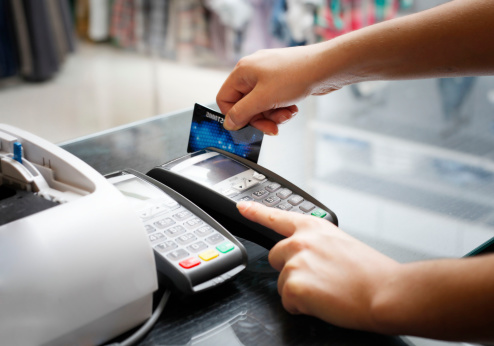 Would you feel comfortable handing a thief access to your checking account? No? We don’t blame you. As data breaches continue to rise, there’s a lot of focus on using credit cards safely, but debit cards can actually present a greater risk. How? Well, credit card users can simply decline charges and not pay the bill until the issue is resolved, whereas debit cards draw cash directly from the account and not much can be done on the users part.
Would you feel comfortable handing a thief access to your checking account? No? We don’t blame you. As data breaches continue to rise, there’s a lot of focus on using credit cards safely, but debit cards can actually present a greater risk. How? Well, credit card users can simply decline charges and not pay the bill until the issue is resolved, whereas debit cards draw cash directly from the account and not much can be done on the users part.
Unfortunately, you’re probably using your debit card in a risky manner and leaving yourself open to financial theft if you’re swiping in one of these places:
- Skimming ATMS:
Did you know some ATMs give thieves a great opportunity to skim debit card information from unsuspecting victims? Essentially, skimming occurs when a thief installs a device that reads magnetic strips on debit cards. If you’re using an open ATM that’s easily accessible, always look around and make sure it doesn’t seem beaten up or askew. For a safer alternative, go to your local branch ATM as they’re typically more secure.
- Online stores:
For those who prefer not to use credit cards, debit cards can be convenient for shopping online. Unfortunately, shopping online is a dangerous way of making purchases; whether your computer is infected with malware, a man-in-the-middle attack occurs, or the merchant’s database gets hacked, you’re taking a big risk. Make sure online stores are completely safe before making any purchases.
- Restaurants:
When you’re going to a restaurant, always keep in mind that cashiers tend to keep customer payment information on file, in order to make any potential future orders simpler and more convenient. If the restaurant is small, instead of a chain restaurant, it’s even more dangerous as small businesses often don’t safeguard payment data as much as necessary. Whenever possible, pay with cash instead.
Financial fraud is always a scary possibility, however, taking the right precautions and being careful can minimize the risk of having your checking account fall into the wrong hands. To learn more, give us a call or send us an email. Our team of cyber security experts are happy to help you keep your sensitive information safe.




